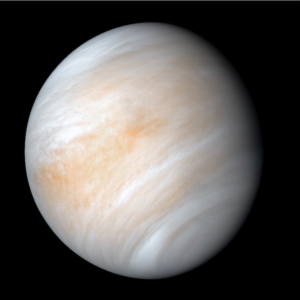I usually don’t talk about this aspect of Article II of the Outer Space Treaty because it applies to governmental appropriation. But the head of the Russian Space Agency, Dmitry Rogozin, who is the director general of Russian space corporation Roscosmos, recently provided a teachable moment. He called Venus a Russian planet. Russia, he pointed out, was the first and only country to successfully land a rover on Venus.
 The Outer Space Treaty, of which Russia is a signatory, addresses claims of national appropriation–that is, where a country tries to claim ownership of a planet. Article II is against that. The treaty says:
The Outer Space Treaty, of which Russia is a signatory, addresses claims of national appropriation–that is, where a country tries to claim ownership of a planet. Article II is against that. The treaty says:
Outer space, including the moon and other celestial bodies, is not subject to national appropriation by claim of sovereignty, by means of use or occupation, or by any other means.
That’s pretty clear (despite the reliance on the dread passive voice). Were Russia to claim Venus, which is a celestial body, it would violate the Outer Space Treaty’s principle against nations appropriating outer space, including celestial bodies. True, the treaty doesn’t forbid all appropriation, but it does rule out “national” appropriation.
I suspect Mr. Rogozin knows all this, and it’s not what he meant.